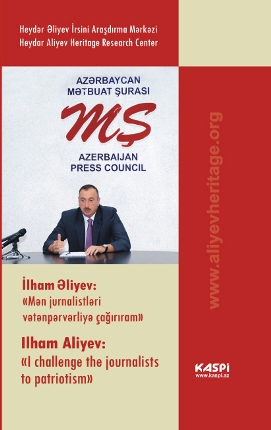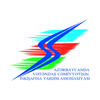(Adopted by the Committee of Ministers on 22 November 1994
at the 521st meeting of the Ministers’ Deputies)
The Committee of Ministers, under the terms of Article 15.b of the Statute of the Council of Europe,
Considering that the aim of the Council of Europe is the achievement of greater unity between its members for the purpose of safeguarding and realising the ideals and principles which are their common heritage;
Recalling that media pluralism and diversity are essential for the functioning of a democratic society;
Recalling also that media concentrations at the national and international levels can have not only positive but also harmful effects on media pluralism and diversity which may justify action by governments;
Noting that the regulation of media concentrations presupposes that the competent services or authorities have information which enables them to know the reality of media ownership structures and, in addition, to identify third parties who might exercise an influence on their independence;
Stressing also that media transparency is necessary to enable members of the public to form an opinion on the value which they should give to the information, ideas and opinions disseminated by the media;
Recalling the media transparency provisions included in texts already adopted within the Council of Europe, in particular Article 6 of the European Convention on Transfrontier Television;
Believing that further provisions should be considered, in the light of the above-mentioned trends, so as to guarantee media transparency and allow exchanges of information between member states for this purpose;
Noting the need to safeguard the rights and legitimate interests of all parties subject to transparency obligations;
Taking account of work carried out within other fora, especially within the framework of the European Union,
Recommends that the governments of member states consider the inclusion in their domestic legislation of provisions intended to guarantee or promote media transparency as well as to facilitate exchanges of information between member states on this topic, drawing on the guidelines appended to this recommendation.
Appendix to Recommendation No. R (94) 13
I. General provisions on media transparency
Guideline No 1: Access by the public to information on the media
Members of the public should have access on an equitable and impartial basis to certain basic information on the media so as to enable them to form an opinion on the value to be given to information, ideas and opinions disseminated by the media.
The communication of this information to members of the public by the media or by the services or authorities responsible for ensuring their transparency should be carried out in a way which respects the rights and legitimate interests of the persons or bodies subject to transparency requirements. Particular attention should be given to the need to reconcile the requirement of transparency with the principle of freedom of trade and industry as well as with the requirements of data protection, commercial secrecy, the confidentiality of the sources of information of the media and editorial secrecy.
Guideline No 2: Exchange of information on media transparency between national authorities
The services or authorities appointed under national legislation to collect data on media transparency should be competent to communicate these data to similar services or authorities in other member states, subject to, and within the limits of, what is permitted under national legislation as well as under international agreements to which each state is party. Where appropriate, the communication of the data should be subject to the express or implied consent of the persons concerned. These possible restrictions should be specified in national legislation and systematically notified to the services or authorities to which the information is addressed.
The likely justifications for the communication of this information should be explicitly mentioned in the legislation and any request for access to it on the part of the services or authorities of other member states should specify the reasons for the request.
The provisions aimed at permitting the communication of information should be drawn up in a way which takes account of any possible regulations concerning the duty of discretion owed by the employees of the services or authorities concerned and the disclosure of information to foreign authorities. If necessary, the provisions should be adapted so as to make these exchanges of information possible.
II. Specific measures which may guarantee media transparency in the broadcasting sector
Guideline No 3: Disclosure of information when granting broadcasting licences to broadcasting services
Transparency in regard to applications for the exploitation of broadcasting services may be guaranteed by including provisions in national legislation obliging applicants for the operation of a radio or television broadcasting service to provide the service or the authority empowered to authorise the operation of the service with information which is fairly wide-ranging in its scope and quite precise in its content. The information which may be subject to disclosure may be schematically grouped into three categories:
– first category: information concerning the persons or bodies participating in the structure which is to operate the service and on the nature and the extent of the respective participation of these persons or bodies in the structure concerned;
– second category: information on the nature and the extent of the interests held by the above persons and bodies in other media or in media enterprises, even in other economic sectors;
– third category: information on other persons or bodies likely to exercise a significant influence on the programming policy of this service by the provision of certain kinds of resources, the nature of which should be clearly specified in the licensing procedures, to the service or to the persons or bodies involved in the latter’s operations.
Guideline No 4: Disclosure of information following the grant of broadcasting licences to broadcasting services
Transparency in the running of broadcasting services may be guaranteed by including in national legislation provisions requiring the persons or bodies operating a broadcasting service to provide the service or authority which authorised the operation of the service with information which will vary in its scope and detail.
The information which may be disclosed may be schematically divided into two main categories:
– information aimed at accounting for changes which have occurred in the course of the operation of the service vis-a-vis the three categories of data referred to above;
– information relating to other categories of data linked to the operation of the service, once the latter has started up.
Guideline No 5: Exercise of the functions of the service or authorities responsible for ensuring transparency in the running of broadcasting services
The missions and powers of the services or authorities responsible for ensuring transparency in the running of broadcasting services should be clearly defined in national legislation. These services or authorities should have at their command the powers and means necessary to ensure the effective exercise of their tasks, while ensuring respect for the rights and legitimate interests of the persons or authorities required to disclose information. They ought to be able, where appropriate, to call on the assistance of other national authorities or services, as well as possibly the expertise of other persons or bodies.
The services or authorities to which the information communicated by the applicants for the operation of a broadcasting service is addressed, and the bodies managing these services, should have the possibility of submitting part of the information to certain sections of the public, given that consultation of the latter might be necessary for the exercise of their missions.
III. Guideline No 6: Specific measures which may guarantee media transparency in the press sector
Transparency in the press sector may be guaranteed by including in national legislation provisions which require press undertakings to disclose a set of information which is more or less broad in its scope and precise in its content.
The information which may be subject to disclosure may be divided into five categories:
– first category: information concerning the identity of the persons or bodies participating in the publishing structure of a press undertaking, as well as the nature and the extent of the participation of these persons or bodies in the structure;
– second category: information on the interests held in other media by the publishing structure or the persons or bodies participating in the latter;
– third category: information concerning the persons or bodies, other than those directly involved in the publishing structure, who are likely to exercise a significant influence over the editorial line of the publications which they manage;
– fourth category: information on any statements of either editorial policy or political orientation of newspapers and publications;
– fifth category: information concerning the financial results of the publishing structure and the distribution of its publication(s).

















